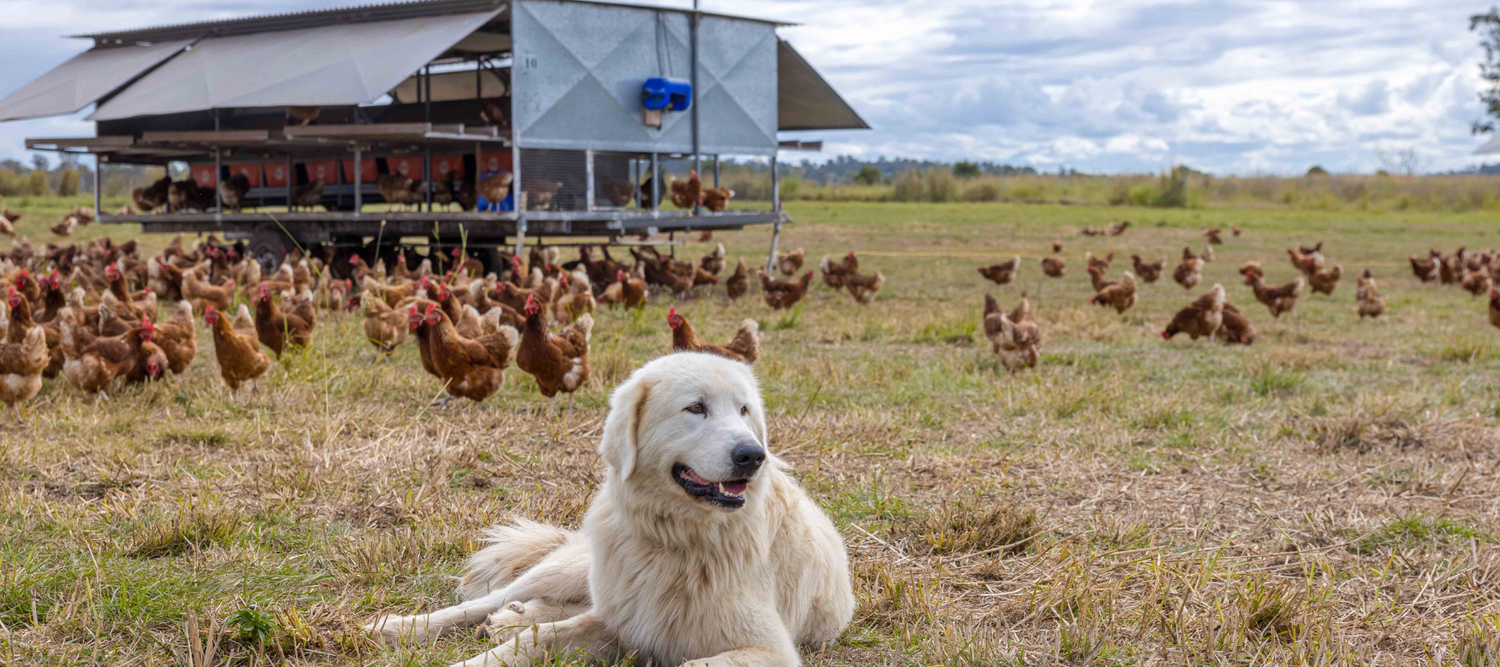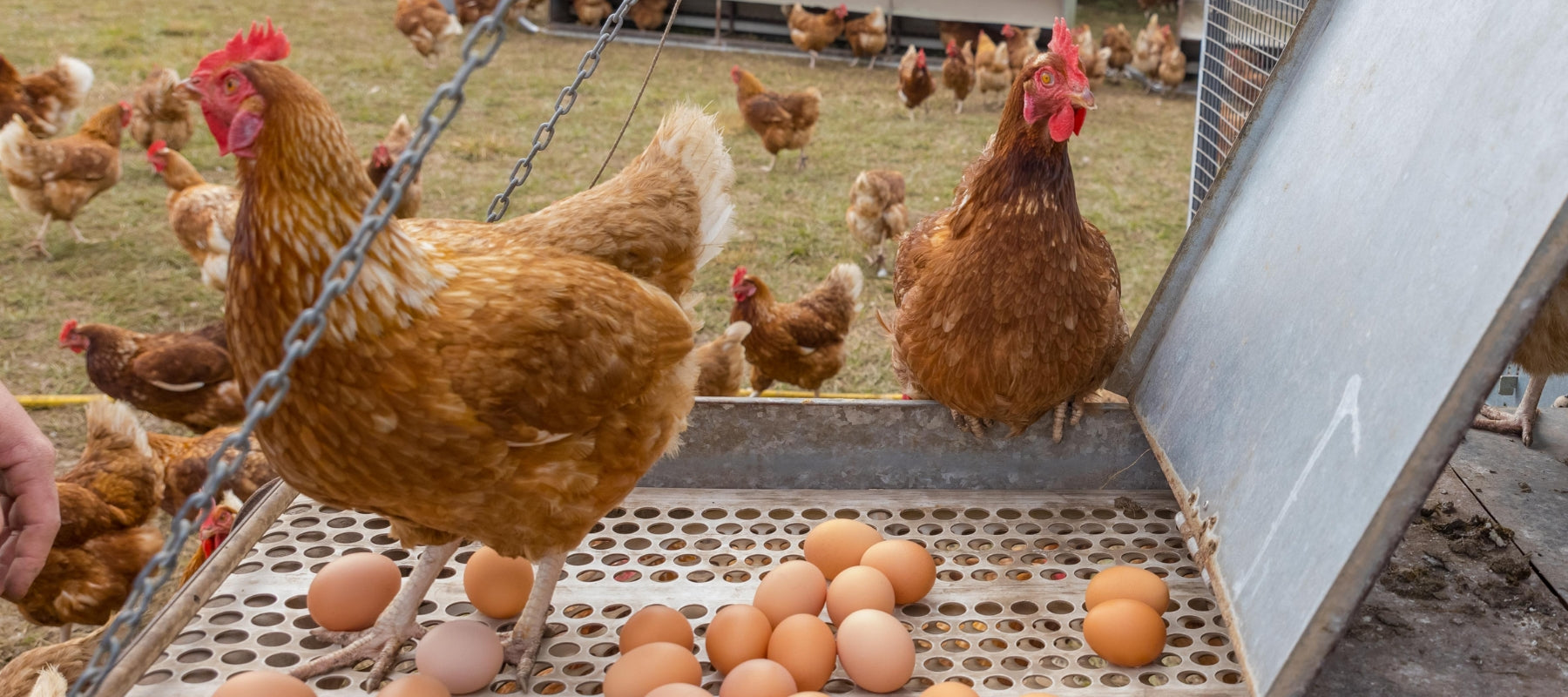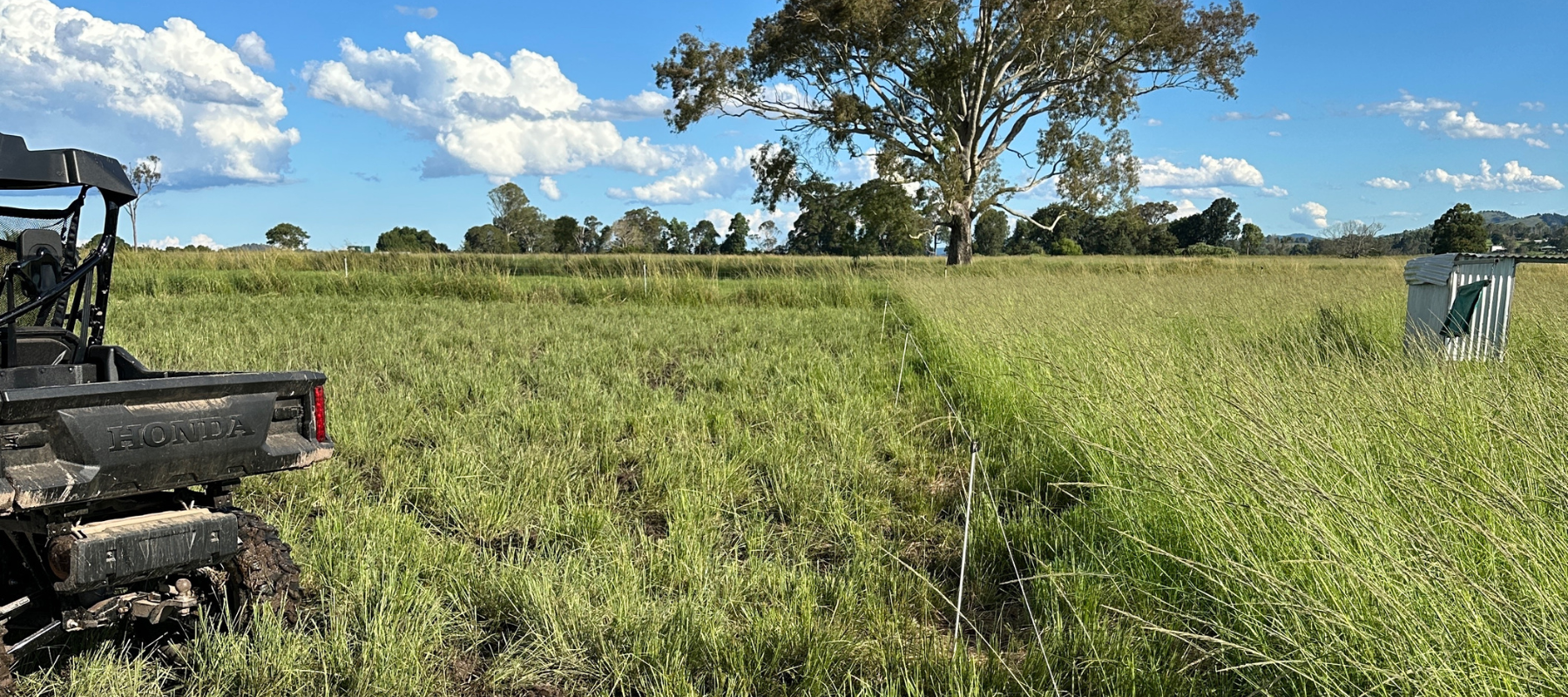Consumers can be forgiven for being confused by the plethora of terms used to describe the food they purchase these days. Words such as pasture raised, grass-fed, free range, sustainable, and organic are all over supermarket shelves and packaging. At worst they are no more than slick marketing. Getting to know your farmer is the best way to be assured of how your food is produced. Talk to them and consider a farm tour so you can see it for yourself.
Forage Farm animals are pasture raised
Our farm has the PROOF stamp of approval. To qualify for this certification, all livestock must be raised outdoors with continuous and unrestricted daytime access to paddocks that are suitable for grazing and are provided with shade and shelter. All animals must use the paddocks each day unless; they choose to shelter because of inclement weather, short-term confinement for veterinary treatment, or when giving birth. Feed supplements must be made available to ensure all their nutritional needs are met. Animals are kept at a stocking intensity that will ensure forage is always available in an actively managed rotational grazing system.
Pasture-raised farms strive to improve the land that they farm to leave it in a better state than they found it, whilst producing food that is better for the animals and more nutritious for you. Animals raised in this environment will never be left to graze in a bare paddock. The Forage Farms chooks are moved twice a week, and the sheep and cattle every two to three days. Our pigs are moved at a minimum, once a fortnight.
Grain fed is not bad when it comes to chooks
If you’re health-conscious, you have no doubt been well educated to believe that grain fed is a dirty-word. Whilst true for cattle, chickens SHOULD be eating grain. Bad press surrounding grain-fed beef – and justifiably so - has led to many people thinking that grass-fed is the way to go for all animals. In fact, chickens are designed to eat grain and have been doing so since the Red Junglefowl roamed Southeast Asia thousands of years ago.
Just like their ancestors who foraged the jungle eating grain, fruits, bugs, insects, roots and seeds, the modern-day hen likes variety - including grain. As the saying goes, you are what you eat, and in the chicken’s case, a diverse diet is the key to optimal health and good quality tasty eggs and meat.
Too much grass and not enough grain can be bad for chooks. Because they don’t have teeth, they tend to eat entire leaves. If they eat too many leaves, they can roll up in a big ball inside the crop above the gizzard or the gizzard itself, leading to grass impaction and possible starvation.
Is pasture raised better?
Free range was once the ethical choice when purchasing eggs, but with the changes to Free Range regulations making an educated choice in the grocery aisle can feel impossible.
To break it down, Australian law allows four categories of eggs: free range, caged, barn, and organic.
Free range have a stocking density of 10,000 hens per hectare or less, which to put into perspective would be like having 7000 birds on a rugby field. Just a little cosy when you consider the fact that these birds will not leave this area for their entire laying life, therefore not receiving any fresh pasture, posing the question how ‘free range’ they really are. At Forage Farms our birds are held at a stocking density of 280 birds per footy field.
A recent study by Mother Earth News found most eggs sold on the market are nutritionally inferior to eggs that are produced in a pasture-based operation.
The study tested eggs from 14 different pastured flocks in an accredited laboratory and compared the results to the official egg nutritional information produced by the US Department of Agriculture.
The results of the study found that the eggs from a pasture operation have:
- a 1/3 less cholesterol
- a ¼ less saturated fat
- 2/3 more vitamin A
- 2 times more omega-3 fatty acids
- 3 times more vitamin E
- 7 times more beta-carotene
As the results show, eggs produced from a pasture-based operation outperform the eggs produced from their competitors.
The term pastured is growing as ‘real’ producers seek to find a way to disregards overused terms such as ‘free range.’ They farmers are looking to promote a way of farming that is advantageous to the bird and to the landscape.
If you want to see a pasture raised farm in action you are welcome to book a farm tour.




